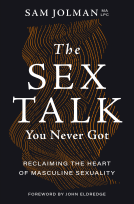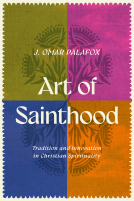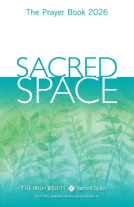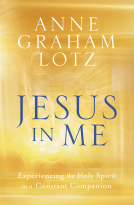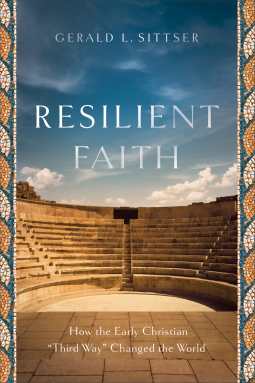
Resilient Faith
How the Early Christian "Third Way" Changed the World
by Gerald L. Sittser
This title was previously available on NetGalley and is now archived.
Send NetGalley books directly to your Kindle or Kindle app
1
To read on a Kindle or Kindle app, please add kindle@netgalley.com as an approved email address to receive files in your Amazon account. Click here for step-by-step instructions.
2
Also find your Kindle email address within your Amazon account, and enter it here.
Pub Date Oct 15 2019 | Archive Date Dec 20 2019
Talking about this book? Use #ResilientFaith #NetGalley. More hashtag tips!
Description
Sittser shows how the early church offers wisdom for responding creatively to the West's increasing secularization. The early Christian movement was surprisingly influential and successful in the Roman world, and so different from its two main rivals--traditional religion and Judaism--that Rome identified it as a "third way." Early Christians immersed themselves in the empire without significant accommodation to or isolation from the culture. They confessed Jesus as Lord and formed disciples accordingly, which helped the church grow in numbers and influence.
Sittser explores how Christians today can learn from this third way and respond faithfully, creatively, and winsomely to a world that sees Christianity as largely obsolete. Each chapter introduces historical figures, ancient texts, practices, and institutions to explain and explore the third way of the Jesus movement, which, surprising everyone, changed the world.
Available Editions
| EDITION | Other Format |
| ISBN | 9781587434082 |
| PRICE | $19.99 (USD) |
| PAGES | 256 |
Average rating from 8 members
Featured Reviews
This was a pretty good survey of church history. It would be suitable for seminary classes and laypeople serious about learning about this topic. The writing is engaging, and the subject is well researched.
I'm not sure this book would be quite right for the average reader looking for something interesting to read in terms of new ideas and ways of living the Christian faith. While the author emphasizes the Catechumenate of the early church, the emphasis is firmly focused on history, not the future.
Nevertheless, this is a worthwhile book for those seeking to learn more about church history from an expert.
 Conrade Y, Reviewer
Conrade Y, Reviewer
Finding a middle path, a way that meanders between any extremes, or some "third way" has been the pattern among many movements in the path. Evolution sees it as "survival of the fittest." The secular world views it as natural selection. The business world thinks of new potential as a new wave. Whatever it is, the possibility of a new way in the midst of conflicting old ways is always a path of hope. In the Early Church, this "third way" is the Jesus Way. Jesus spoke about this as He moves among two huge forces of resistance: Roman and Jewish. Followers of Jesus were also known as followers of "The Way." This way has resisted the Roman persecutions, the Hellenistic cultural forces and Jewish legalistic regimen. In doing so, this way of Jesus impacted the early centuries and is continuing to do so today. By studying the why and how of this Third Way, author Gerald Sittser helps us understand and learn from the resilient gospel of Jesus, and to see its relevance today in our increasingly challenging world. The recurring question that Sittser asks throughout the book is this: How did the Christianity flourish in the light of persecutions and inhospitable conditions? On top of these, they had to resist worldliness. They had to battle heresies. They had to endure being ostracised for their beliefs and lifestyles. Interestingly this "third way" disappeared overnight upon the official recognition of Christianity after Constantine's influence in AD313. It also took on negative perceptions due to the crusades, the Thirty Year War, and many other politicizing of Christianity. In our modern era, we are challenged with a post-Christian hostility, a Millennial scepticism, and the rise of new age spiritualities. In writing about faith and the resilience of the Christian beliefs, Sittser aims to help us see the future with hope even as the days appear dark and daunting. He does this by comparing and contrasting the old and new eras constantly. It flourished in the early centuries because it was deemed new and novel. It was also seen as a major threat to the pre-existing establishment then. During the persecution era, Christians pledged allegiance to Christ incurring the wrath of the Roman emperors. He begins this with a focused look at how the ecclesiastical tradition helped shaped faith through the ages. However, he soon discovers that it was not the Church per se, but the belief in Jesus that is more significant. The Third Way is the Jesus way. For in Christ, we see a bridge between the old and the new; the old world and the new world; the renewal movements and the desire for spiritual refreshment; etc. This pattern of renewed focus on Jesus and revival in the Spirit is what makes the Christian faith resilient.
The Third Way overcame many challenges in the past. It overcame religious and political persecution in the early centuries. It overcame the politicizing of religion, or the Constantinian effect on the Church. It overcame the theological battles against heresies. It overcame the attacks on the Theology of Christ; Trinity; the Person of Jesus; etc. It overcame the cultural divide; language differences; ethnic distinctions; and many other divisive elements of society. While the Church played a huge part in preserving the Third Way, it is not ultimately the reason for the resilience of the Christian faith. For the Christian faith is more a movement rather than a monument.
My Thoughts
Christianity now has become post-Christian. No longer are we seeing the West as a Christian country. It has gone to the other extreme, to become like the Rome of yesterday, where the religion is the world. The world is increasingly secular, atheistic, and overwhelmingly hostile to anything to do with Christianity. Yet, during moments where things look dim and dark, it is heartening to take a look at history, and in spite of overwhelming difficulty, the faith continues to grow in leaps and bounds. The Third Way then is still the relevant Third Way today. This bears testimony to the living Christ. By tracing the historical resilience, Sittser shows us that what happened in the past could embolden believers today to remain hopeful in spite of marginalization of religion. This "something else" is about going back to the fundamentals of our faith. In our modern Church scene, people are seeing revival in terms of megachurches, loud music, attractive programming, and so on. Yet, these things are mere cultural adaptations where people adapt the faith to fit the cultural expectations. This will not make the faith any more resilient. A simple test would be this: Remove these expensive equipment, ambient atmosphere, comfortable chairs and fads, we would realize that only Christ makes all the difference. The early disciples didn't have what the modern church have. They don't even have any training from the theological curriculums of our modern seminaries! Their teacher is Jesus and their guide is the Holy Spirit. We too have the same Teacher and Guide because Jesus and the Holy Spirit is with us.
One of the most famous words from Dr Richard Halverson, former chaplain to the US Senate was: "In the beginning the church was a fellowship of men and women centering on the living Christ. Then the church moved to Greece, where it became a philosophy. Then it moved to Rome, where it became an institution. Next it moved to Europe where it became a culture, and, finally, it moved to America where it became an enterprise." I would even add that today, it has become a nice add-on instead of the main thing. This book is heavy on Church history, and gives readers the foundation of understanding the unique challenges faced by the early church. We should not take the simplistic approach that in order to grow, we must replicate the past to reinvigorate the present. No. Instead, we should be encouraged by our ancestors who fought the good fight and finished the race. Every generation will have their own battles to face and to overcome. We shall overcome but only in Christ. For without Christ, we can do nothing. With Christ, nothing is impossible. The belief in this alone will not only continue the legacy of the Christian faith, it strengthens our faith too.
Rating: 4.25 stars of 5.
conrade
This book has been provided courtesy of Brazos and NetGalley without requiring a positive review. All opinions offered above are mine unless otherwise stated or implied.
 Kathy F, Reviewer
Kathy F, Reviewer
Resilient Faith: How the Early Christian "third Way" Changed the World by Gerald L. Sittser is a very good history of the Christian faith. Sittser writes of the beginnings of Christianity, its recognition as the "third Way" (in addition to Roman and Jewish beliefs), it becoming the recognized default religion in the West, and the challenges it faces today in an increasingly secular world.
Sittser examines how the lessons and actions of the early church may be the answer to Christianity regaining its place in the lives of people who have turned away from the church as well as helping to restore the moral compass our society seems to have lost.
Highly readable and fascinating, this gets a 4-star review from me.
Many thanks to NetGalley and Brazos Press for allowing me to read a copy of the book in exchange for an unbiased review.
 Laura D, Reviewer
Laura D, Reviewer
What can Christians today learn from the early church? That is what I hoped to learn by reading Resilient Faith by Gerald L. Sittser. I learned that and so much more.
The author takes us on an extensive journey of Christianity. Using the Bible, writings from early church leaders and secular books on the history of Rome and the emergence of Christianity. It is clear, early on, that the church began to have problems once Gentiles were adopted into the faith. For example, when the Apostles were alive, they made Israel's Bible (the Torah) the Christian Bible. They used it in worship, in sermons and quoted it in their writings. The church, during the time of Apostolic Leadership, kept the Sabbath on Saturday as God had commanded. Using the Torah, they were able to show new believers God's plan of redemption, starting at creation and would end with a new heaven and a new earth. For the disciples, the Torah was a "glorious narrative, and Jesus is at the center of it."
The problems began after the apostles were all gone, and more and more Gentiles became believers. Unfortunately, unlike the gentiles of Jesus' time, these believers knew nothing of the Jewish Torah or the Jewish faith and began to separate themselves from it. The author covers a lot of ground about how and why the church separated itself from Jewish Christians, and it is an interesting read.
The author included many quotes and notes from historical church figures like Eusebius, Ignatius of Antioch, Polycarp, and Irenaeus, among others. He also included Gnostic and heretical writings from Marcion of Sinope, who was expelled from the church as a heretic. I loved these bits of information because they began to show a picture of how quickly the church lost its focus as Jesus being the centre of all things.
An interesting tidbit of history was on catechumenates and the very Catholic rituals that began to be observed during the 3rd century. New believers were put through a carefully choreographed initiation of examination, lessons, indoctrination, etc. before they were accepted as believers. The description left me feeling like the early church operated like a cult. Belief in Jesus and confession, along with repentance, just weren't enough. This 3rd-century ritualistic observation included the daily recitation of the Lord's prayer, daily exorcisms, anointings, confirmation, baptism and partaking of the Eucharist. These were all needed to become a Christian. But eventually, even this discipline in the early church faded. I am glad, as the more I read, the more it sounded like they were replacing faith with more rituals and laws to follow.
If you are a student of the Word, you will enjoy this informative book on early church history. While I disagree with the author's conclusions as to how the 21st-century church should operate today to survive in a hostile world, it is still an interesting read.
I received this book courtesy of Brazos Press and NetGalley for my honest opinion.
 Julia B, Reviewer
Julia B, Reviewer
This book is SO good! Sittser reflects on early Christian faith, and how it formed a "third way" to the dominant Roman and Jewish cultures of the day. He provides historical and theological reflections on the way early Christians worshipped, practiced spiritual disciplines, discipled and lived. The book is accessible and very enjoyable to read. Rather than drawing a lot of parallels on how we should be more like these Christians, he simply paints a picture of how they lived and leaves it with the reader to reflect on how we should to - which was powerful and effective.
An exploration into the faith and practice of the "early church" between the apostolic age and the Battle of the Milvian Bridge, following the pattern of the anonymous Letter to Diognetus.
The author does so with a view to encourage Christians in a post-Christendom, more secular world, since Christians in this period maintained and promoted their faith despite official opposition. The author explores how early Christians did so with the Letter to Diognetus and the portrayal of Christianity as the "Third Way," not the "First Way" of the Romans or the "Second Way" of the Jews. He explored what we can know from early sources about their way of life at home and in the world, their assemblies, how they spoke of Jesus, their community, their balance of maintaining what was revealed by the Apostles between the various forms of heresy, and what many pagans found appealing about the faith.
The real purpose of the work, revealed at the end, was the encouragement of the revival of some kind of the catechumate - a recognition that discipleship in faith cannot be expected to come from cultural mores or just unconscious absorption from society or even participation in the life of churches.
The book does well at opening the reader's eyes to the world of early Christianity. The author is a bit too much of a cheerleader for many of the patristic authors, and exalts them highly. There is not as much about monastic life or about chastity as might be expected. He seems to fully affirm the hierarchical leadership formats which developed in early Christianity and finds no difficulty with them. The author is not wrong that modern discipleship practices are not sufficiently robust, and while much can be learned from the catechumate process, it would be helpful to modify it for modern purposes.
Nevertheless, a good introduction to early Christianity for Christians who are generally woefully ignorant of this heritage, and all the more important since the world we inhabit is very much more like theirs than we might be willing to admit.
 Scott N, Reviewer
Scott N, Reviewer
Resilient Faith: How the Early Christian "Third Way" Changed the World, written by Gerald L. Sittser, is a remarkable book that explores the impact of Christianity on the ancient world. The author presents an insightful analysis of how early Christians changed the world by adopting a "Third Way" that challenged the prevailing cultural norms of their time.
One of the most compelling aspects of the book is the author's ability to draw out lessons from the early Christian experience that are relevant to our contemporary context. Sittser writes, "In a world that thrives on power, wealth, and success, Christians still have a message to proclaim: There is another way to live, a way that does not depend on the things the world values most."
Another strength of the book is Sittser's engaging and accessible writing style. He presents complex ideas in a clear and concise manner, making the book a pleasure to read. Sittser also draws on a wide range of sources, including scripture, historical texts, and contemporary scholarship, to support his arguments. In today's polarized culture, Sittser offers some useful guidance on navigating the rough waters. Highly recommended.



